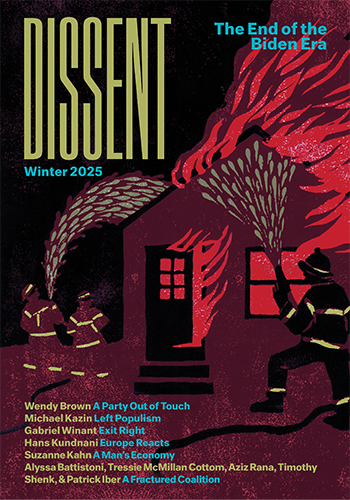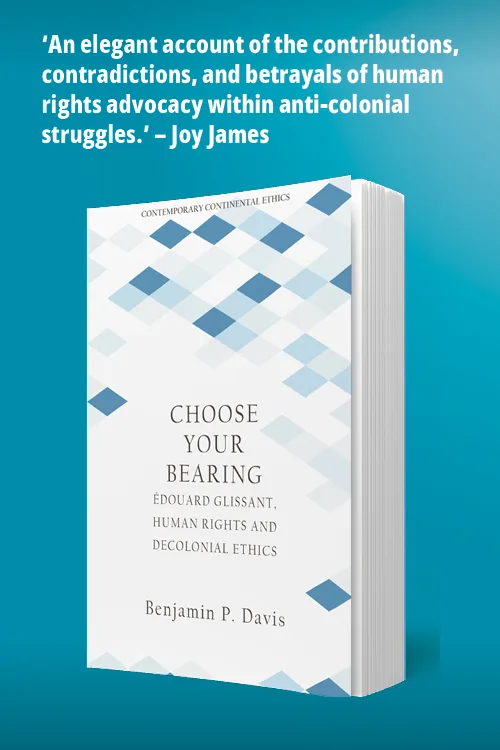Open Letter to the Parties: Time for the Neo-Dissidents
Open Letter to the Parties: Time for the Neo-Dissidents
No liberal democracy, political party, market economy, or human right is set in stone. People created these concepts, and people have the power to destroy them. These social constructs are often elevated to the rank of universal laws or endowed with a sacred permanence; they carry on, immutable, even when utterly stripped of the spirit in which they originally came into being.
If I had not seen the thousands of people protesting in the streets of Spain, peacefully demanding legal reforms to laws governing their political existence, perhaps I would lack the confidence to write the following: we are witnessing the demise of state systems made up of political parties as we know them today.
Occupy Wall Street and the Spanish protests of 2011 and 2012 made the same claim that the thinkers who make up the group Krytyka Polityczna and many other groups have been making for years: we need to analyze the absence of real political choice, as well as the lack of differences between parties in their economic policies. No ruling leftist party can, or will, implement socio-democratic reforms, whether it wants to or not; this is a consequence of globalized developments that relate to capital and not democratic choice. These developments, such as the competition between national states to introduce the lowest tax rate, have led to a system in which social-democratic economic policy within a single state is practically impossible. Such a policy would increase the national deficit, lower stock prices, and chase investment into neighboring countries, threatening the stability of the entire national economy. Those socially rejected by a powerless Left turn instead to firebrand populist campaigners, thus fueling other conflicts over such issues as abortion and immigration or creating new symbolic spheres of discord.
One can still pretend that differences, and therefore pluralism and diversity, exist—or rather, continue to exist. Yet these are merely empty excuses, which fail to resolve any social problems. Indeed, they become problems in themselves, focusing the media’s attention on the parties and taking with it the attention of the electorate. Hence, the “cartel” of the same parties remains in power, all the while acting as if it is engaged in a real democratic struggle over real issues, as if differences have not disappeared. No, they claim, not only have they not vanished, but they live on, in Herculean proportions!
How much longer are we going to pretend that this is democracy? How much longer will we fool ourselves into thinking that voters have any real choices? Is the artificial polarization of our political system really the pluralism that we promised ourselves, at least after 1989 in Poland?
We are witnessing the demise of state systems made up of political parties as we know them today.
This illusion of choice is present almost everywhere in the Western world. Political opponents absorb one another, old parties wither away, the spaces created for new alternatives never appear, turning instead into hollow voids, and risking the shutdown of the entire democratic system. And because it is conformists, rather than nonconformists, who are more likely to accept this state of affairs, the political scene is increasingly dominated by the former. Silvio Berlusconi, Nicolas Sarkozy, François Hollande, Angela Merkel, and even Barack Obama, not to mention our own Donald Tusk, build kaleidoscopic political coalitions in which “public relations,” political marketing, and teleprompters replace programs of meaningful political action. Image becomes privileged above all else, as if the whole thing were no more than a well-cast, never-ending soap opera about power, rather than a project that aims to achieve a political goal. In this way, a new elite of permanent party politicians is created, into which one can at best be co-opted; at the same time, success now requires no more than an easily recognizable public persona, something to be pursued and cultivated at all cost. Celebrity politicians will always find a place in some party, plastered in substantial quantities of television studio make-up and spouting cheap sound bites, utterly stripped of any true vision or honor.
Society, or rather the masses, is now confronted with a new social contract: we will take any steps necessary to gain power. To this end, we will jettison any ideological ballast along the way. But don’t worry! Despite all this, we will be able to manage the economic crisis, the building of motorways and atomic power stations, the national deficit and other administrative wrangles. The problem is that this kind of escape from politics turns out to be effective in the process of securing power, but completely useless when it comes to exercising it. Western economies have fallen into a deep crisis, while the European Union has found itself frozen and powerless in an accelerating downward spiral.
How much longer are we going to pretend that this is democracy? How much longer will we fool ourselves into thinking that voters have any real choices?
If such an escape from politics were even possible, perhaps we would need to accept it as a necessary evil. But all it is good for is the creation of a sanitized line of fire against right-wing populists (from the Greek Golden Dawn to the American Tea Party). The spirit currently evaporating from present-day liberal democracies was once a useful tension between political ideologies with the idealistic hope that the best one would win. Compromises happened frequently. However, a compromise between ideals or policies is completely different from opportunistic evolutions in a collective public image. Political parties today are as good at dumbing down the public as are most television programs. It seems as if whoever first abandons any spirit of mission ends up victorious. This kind of thinking may make economic sense in the media, but not in politics.
In the long run, what happens in the political sphere reflects what happens in the public sphere. The commercialization of an increasing number of social spheres has led to the dissolution of society all the way down to individuals, each competing with one another at every possible step. Political communities have been transformed into a modernized “state of nature,” in which once again homo homini lupus est(man is a wolf to man). And so perhaps it is not only the concepts of systems of political parties or liberal democracy that are coming to an end, but even society itself in an increasingly disenchanted world.
One of the most perceptive observers of this process was Czesław Miłosz; in our current predicament, we would do well to pay careful attention to his writings. His most political essay, The Captive Mind, published in 1951, was not only a dissection of communist ideology but the unmasking of a system in which the appearance of a lack of alternatives insidiously enslaves even the most enlightened minds. It is not repression that Miłosz warns us against most vigorously, but rather the ponderous weight of ideology—an ideology that can crush both the individual and any democracy which individuals create; an ideology that forces obedience by making alternatives seem inconceivable.
This holds true not only for the totalitarian ideologies of the twentieth century but for the ideologies we encounter now. Indeed, Miłosz’s skepticism toward the heralding of “The End of the Age of Ideologies” should not be read as analogous to the belief that another ideology such as communism can again enslave people. He would observe that this enslavement is taking place before our very eyes; the steady degeneration of life down to its base physiology results in a “cattle-like existence,” which Miłosz described in his 1995 in The Year of the Hunter as, “papu, kaku i lulu” (“They eat, they drink, they multiply, and they are content—but why?”). This kind of life, predominant in modern consumerist capitalist states, was also described by Miłosz in 1969 in his prophetic Visions from San Francisco Bay, as a paradoxical consequence of ever-advancing individualization.
Today, the radical perspectives of both Left and Right seem equally improbable in a world characterized by liberal irony, something nearly all of us delight in. We refuse to take ourselves too seriously. We are reluctant to become engaged, animated, or active, feeding our reluctance with a sense of shame both crippling and near-universal. The “prison of ridicule” built by regimes of cynical thinking has turned out to be as frightening a tool of coercion as the old punishment of being locked up in a real prison.
So we find ourselves with a dilemma: does a politics that guarantees that the crimes of the twentieth century will not be repeated also function as a barrier to societal self-organization? Miłosz spent his life seeking to answer the question of how to rediscover the meaning of life in a disenchanted world. He searched for it not only in Polish and Russian literature of the nineteenth century but also in Blake and Swedenborg, in early Manichean Christian sects, and in the Bible. This zealous poet and intellectual pursued his quest every place where one does not gamble away free will or human liberties—not even for the promise of life in a “crystal palace.”
Today, the radical perspectives of both Left and Right seem equally improbable in a world characterized by liberal irony, something nearly all of us delight in.
In analogous fashion, the German philosopher Peter Sloterdijk has noted the transition between classical enlightenment critiques of ideology, in which social evils were accounted for by false perceptions of reality, and today’s attitude of conscious resignation. It is no longer the case that people “act unknowingly.” Rather, “they know very well what they are doing, but still, they do it.” It is no secret that we live in an exhibitionist age; the question is, how can we get ourselves to rise up from our all-too-comfortable seats in the audience?
Since we are dealing with an overwhelming paralysis of action rather than the debilitation of minds, there is no need for any complicated new arguments. Confronted by the breakup of society as a result of the individualization and mercantilization of nearly all spheres of public life, we need more than a new political narrative to unite and mobilize ourselves to put our self-interest aside and trust one another enough to engage in making social change. People will not risk their own careers if they are not sure that others will do the same. It is not fear that paralyzes people, as it did in the twentieth century. It is the shame of falling behind in the rat race.
What may really persuade people to come together is common experience as the experience of commonness. It is undertakings rather than abstract theory. In today’s world, it is not the argument or emotion that can form social bonds, but common actions that build real and long-term trust. Sociologists express concern about the decrease of social capital, what Robert Putnam calls the phenomenon of “bowling alone.” Less is written about how one can act politically in such a “post-society.” It appears that “social glue” cannot be produced on a mass scale. “Together,” in real life, refers to a very few, later to a few dozen, at most to a few hundred people, if it is to be a real together, one that derives from common experiences. But the power of close-knit people is enormous, and their determination is far greater than that which emerges from the logic of the market or NGOs, much less the glitzy but desiccated party structures.
The “action plans” proposed in the past works of such East European thinkers and activists as Jacek Kuroń and Václav Havel suggest a way forward. The theory and practice of small groups does not guarantee the creation of a social movement. Yet, no such movement can be created without it—without islands of trust. Perhaps their absence explains why recent mass outbreaks of discontent, such as the Indignados and Occupy, were merely protests and did not develop into social movements.
Havel neither believed in Soviet Communism nor ever became an uncritical dreamer of liberal democracy, the invisible hand of the market, and consumer prosperity. After the collapse of communism, he did not get stuck on old maps, nor did he neglect new challenges. Already in The Power of the Powerless, published in 1978, he wrote,
It would appear that the traditional parliamentary democracies can offer no fundamental opposition to the automatism of technological civilization and the industrial-consumer society, for they, too, are being dragged helplessly along by it. They are manipulated in ways that are infinitely more subtle and refined than the brutal methods used in the post-totalitarian societies.
And these were not the views of a naïve idealist. As president of the Czech Republic, Havel did not silently accept the “realities” of power. His autobiography was originally entitled Keep It Short. Please (in English, it is To the Castle and Back: Reflections on My Strange Life as a Fairy-Tale Hero). Havel picked the title to protest the stupidity of commercialized media, which he believed turned everything into a thoughtless form, and against the journalists who accepted this. Yes, we know, said Havel, that this is the norm, and those who do not comply will be hidden away under a hat. But maybe if more of us did not comply it would be much easier to think in fresher and more helpful ways. For Havel, we are all shoppers at the grocery store who can either accept the imperfect world around us or challenge it. We will remain this way as long as this imperfect world is based on almost universal indifference.
In The Power of the Powerless, Havel recommended a method of social action:
I believe in structures that are not aimed at the technical aspect of the execution of power….There can and must be structures that are open, dynamic, and small; beyond a certain point, human ties like personal trust and personal responsibility cannot work….They would be structures not in the sense of organizations or institutions, but like a community. Their authority certainly cannot be based on long-empty traditions, like the tradition of mass political parties, but rather on how, in concrete terms, they enter into a given situation.
Jacek Kuroń organized such groups to resist Communist rule in Poland. He helped form such groups as “The Commandos,” which initiated student protests in March 1968 (with Adam Michnik, among others), and the Workers’ Defense Committee, a vital forerunner of the Solidarity movement. Kuroń paid a lot of attention to two ideal types of groups: expressive and instrumental. Expressive groups derive from a bond that is formed between people “who share the same experience, read the same books, have the same viewpoints.” They show “incredible strength and resilience.” Instrumental groups, on the other hand, concentrate on an external aim. They are more formalized, regulated, and aim for efficiency. The latter are more familiar to us; this “cold” element, ubiquitous in today’s world, overshadows the warm one. Kuroń and Havel envisioned not a conservative utopia of organic communities but a well-balanced mixture of the warm element of a solid social bond and the cold element, reliable and effective.
What we need now are not nuclear power plants generating more energy for wealthy post-societies but plants capable of producing social glue that would restore societies. We must rebuild interpersonal relationships for change, first through actively organized groups and then through social movements.
A mere three decades ago, Poland gave birth to the largest such movement the world has ever seen; Solidarity had ten million members. But we still behave as though present-day political parties—stripped of ideals and staffed by people without qualities—can satisfy us. The world crashes into us like un-reason incarnate, like the creation of some deranged gigantic brain. Can one nonchalantly accept that huge burden, and agree that what exists, simply is, and that’s that?” asked Milosz. The answer? “One can, but only by passively accepting it in a state of brutish contemplation, like a grazing cow. If we are capable of compassion, yet at the same time powerless, then we live in a state of desperate irritability.”
Sławomir Sierakowski is the leader of Krytyka Polityczna (Political Critique), based in Poland with branches in Ukraine and Russia. It is the largest movement of left-wing intellectuals, artists, and activists in Eastern Europe. He is also director of the Institute for Advanced Study in Warsaw. This open letter to political parties was published in the weekend edition of Gazeta Wyborcza (June 18–19, 2011). Its publication sparked months of debate, which included, among others, essays in response by the social theorist Zygmunt Bauman and Poland’s former president Aleksander Kwaśniewski. Portions translated from the Polish by Klara Wojtkowska.
The title of this essay is taken from the famous text written by two Polish dissidents, Jacek Kuroń and Karol Modzelewski, in 1964. In this letter they criticized a new ruling and bureaucratic class in communist Poland. The wordplay is based on the word “Partii,” which in the genitive case can mean in Polish both “party” and “parties.” The first party is the (one and the only) Polish Communist Party, the second is the current Polish (but not only Polish) party system.





